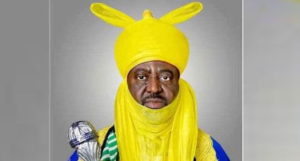The Nigerian Bar Association (NBA) has expressed strong disapproval of the conflicting orders issued by the Federal High Court, the Kano State High Court, and again the Federal High Court, describing the situation as bringing “utter disgrace and shame to the profession.”
In a statement signed by NBA National Publicity Secretary Akorede Lawal on Wednesday, the association lamented that the actions of these courts have severely tarnished the reputation of the legal profession in Nigeria, exposing it to public ridicule and opprobrium. “The damage would take the legal profession a long time to recover from. It is unfortunate and was uncalled for,” the statement read.
NBA President Yakubu Maikyau, in a candid assessment, called for an urgent review of the professional conduct of both the counsel and the judges involved in these controversial matters. “Without prejudice to the subsisting actions before both the Federal High Court and the Kano State High Court, it is my considered view that there is an urgent need to scrutinise the professional conducts of both Counsel and the Judges involved in these matters. This is to enable the relevant bodies or institutions to determine their culpability or, otherwise, from an ethical and professional standpoint,” Maikyau said.
Maikyau urged the heads of the respective courts to immediately investigate the conduct of the judges involved, with a view to determining any possible abuse of their judicial offices and to report their findings to the National Judicial Council (NJC) for appropriate action. As for the lawyers involved, the NBA President assured that the association would thoroughly investigate their conduct and would not hesitate to initiate disciplinary action before the Legal Practitioners Disciplinary Committee if any professional misconduct is found.
The issue came to a head on Tuesday when both the Federal High Court and the Kano State High Court issued conflicting interim injunctions concerning the Kano Emirate. This development has escalated tensions and created uncertainty in the state.
Justice S. A. Amobeda of the Federal High Court in Kano issued an order for the eviction of Emir Muhammadu Sanusi II from the Kofar Kudu Palace, thereby reaffirming the authority of the 15th Emir of Kano, Aminu Ado Bayero. “An order of interim injunction restraining the respondents from inviting, arresting, detaining, threatening, intimidating, harassing the Applicant, or infringing on his rights is hereby granted,” stated Justice Amobeda. He added, “This order ensures that Emir Aminu Bayero enjoys all rights and privileges accrued to him by virtue of his position.”
 In a stark contrast, the Kano State High Court, presided over by Hon. Justice Amina Adamu Aliyu, issued an injunction to protect Muhammadu Sunusi and other key figures from potential harassment by state authorities. Justice Aliyu’s order prevents any interference with the Emir’s autonomy and the seizure of key symbols of his authority, such as the twin spear, the Royal Hat of Dabo, and the Ostrich-feathered shoes. She emphasized, “An order of interim injunction is granted restraining the Respondents from harassing or intimidating the Applicants or confiscating any symbols of the Emir’s authority.” Justice Aliyu further ordered the respondents to maintain the status quo pending the hearing and determination of the motion on notice.
In a stark contrast, the Kano State High Court, presided over by Hon. Justice Amina Adamu Aliyu, issued an injunction to protect Muhammadu Sunusi and other key figures from potential harassment by state authorities. Justice Aliyu’s order prevents any interference with the Emir’s autonomy and the seizure of key symbols of his authority, such as the twin spear, the Royal Hat of Dabo, and the Ostrich-feathered shoes. She emphasized, “An order of interim injunction is granted restraining the Respondents from harassing or intimidating the Applicants or confiscating any symbols of the Emir’s authority.” Justice Aliyu further ordered the respondents to maintain the status quo pending the hearing and determination of the motion on notice.
These conflicting rulings have plunged the Kano Emirate into a state of legal uncertainty, with the future of its leadership hanging in the balance. Both courts are expected to make further determinations in the coming weeks, and the outcomes of these hearings will significantly impact the leadership and governance within one of Nigeria’s most prominent traditional institutions.
The NBA’s call for scrutiny and potential disciplinary measures highlights the critical need for maintaining the integrity and professionalism of the legal system. As the nation watches these events unfold, there is a growing demand for accountability and a resolution that upholds the rule of law and restores confidence in Nigeria’s judicial processes.




